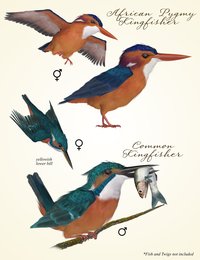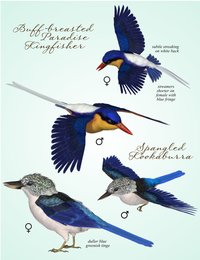-
Welcome to the Community Forums at HiveWire 3D! Please note that the user name you choose for our forum will be displayed to the public. Our store was closed as January 4, 2021. You can find HiveWire 3D and Lisa's Botanicals products, as well as many of our Contributing Artists, at Renderosity. This thread lists where many are now selling their products. Renderosity is generously putting products which were purchased at HiveWire 3D and are now sold at their store into customer accounts by gifting them. This is not an overnight process so please be patient, if you have already emailed them about this. If you have NOT emailed them, please see the 2nd post in this thread for instructions on what you need to do
You are using an out of date browser. It may not display this or other websites correctly.
You should upgrade or use an alternative browser.
You should upgrade or use an alternative browser.
Songbird Remix's Product Preview Thread
- Thread starter Ken Gilliland
- Start date
That European one...are they related to Kingfishers? Very similar body and beak.
Dana
Yes, Kingfishers, Bee-eaters and Rollers are in the "Coraciiformes" family... I'm working of "Kingfishers of the World" now, and yes, the European Kingfisher is included in that set.
DanaTA
Distinguished
Had a belted King Fisher across the street a couple of years ago. He was up on the wires, watching the pond across the street. Then, suddenly he launched and grabbed something and disappeared. It was the only time I saw one around here. I'm sure they're around, I just don't see them.Yes, Kingfishers, Bee-eaters and Rollers are in the "Coraciiformes" family... I'm working of "Kingfishers of the World" now, and yes, the European Kingfisher is included in that set.
Dana
Flint_Hawk
Dances with Bees
They are beauties!
Renderosity has changed their new release policy (no new releases during sales) so my Bee-eaters set won't headlining the upcoming Audubon's Birthday event-- it will be released on April 16th. I expect my other new release, "Kingfishers" to be released in early May (after the sale).
..and yet a few more of the new Kingfishers... there will be 12 new species in all.
..and yet a few more of the new Kingfishers... there will be 12 new species in all.
Attachments
Flint_Hawk
Dances with Bees
These look wonderful!
Thank-you... I think they are about just as colorful as the bee-eaters. That's not too surprising since they are closely related... I guess sooner or later I'll have to do the remaining third of that super-family (Order Coraciiformes) which Rollers, Motmots and Todies.These look wonderful!
I haven't really decided where to go after Kingfishers-- I guess finishing the last few updates in my catalog then some brand new models over the summer-- maybe "Hens & Cockerels" since our neighbor has a new addition that starts crowing at 2am every morning
Here's the colorful European Bee-eater... it breeds throughout central and southern Europe, northern Africa and western Asia. It thrives in a “Mediterranean Climate”. As the planet warms, their breeding range is expanding northward. The non-breeding range extends to southern India and Africa.
As the name suggests, it primarily eats bumblebees and honeybees in Europe and stingless bees in Africa... but as shown in my render, it will eat other flying insects such as dragon and damselflies.
The European Bee-eater is the most widespread species of Meropidae (bee-eaters). A major threat to bee-eaters is the progressive loss of insect biodiversity and biomass. Large-scale use of pesticides in Europe and Africa and the increase of large-scale agricultural monocultures are thought to be key causes for the insect collapse, which in turn, harm bee-eaters.

We're moving into a very, very busy couple of weeks for me...
Bee-eaters will premiere on the 16th. I'll have its dietary requirements on sale too.
Then, from Earth Day to Audubon's Birthday, Renderosity will be hosting my annual Audubon's Birthday Charity Sale. In this sale, I give 33% (or more) of my take to Audubon California's Tri-colored Blackbird protection program which has saved this bird from extinction for the past 20 years. Simply buying one set, will save at least one baby Tri-colored Blackbird.
After the sale, sometime in early-to-mid May, I'll release the Kingfishers set...

As the name suggests, it primarily eats bumblebees and honeybees in Europe and stingless bees in Africa... but as shown in my render, it will eat other flying insects such as dragon and damselflies.
The European Bee-eater is the most widespread species of Meropidae (bee-eaters). A major threat to bee-eaters is the progressive loss of insect biodiversity and biomass. Large-scale use of pesticides in Europe and Africa and the increase of large-scale agricultural monocultures are thought to be key causes for the insect collapse, which in turn, harm bee-eaters.
We're moving into a very, very busy couple of weeks for me...
Bee-eaters will premiere on the 16th. I'll have its dietary requirements on sale too.
Then, from Earth Day to Audubon's Birthday, Renderosity will be hosting my annual Audubon's Birthday Charity Sale. In this sale, I give 33% (or more) of my take to Audubon California's Tri-colored Blackbird protection program which has saved this bird from extinction for the past 20 years. Simply buying one set, will save at least one baby Tri-colored Blackbird.
After the sale, sometime in early-to-mid May, I'll release the Kingfishers set...
All flying insects beware... Songbird ReMix Bee-eaters is out!
Since the majority of people who frequent this thread already know this, I'm posting this a few days early (with a link that will bring you to my Renderosity store pages). This sale I always deem the most important one of the year for me because I donate 33% (or more) of my proceeds to Audubon's "Give $5/Save 5 Birds" program. What that means is literally purchasing any single item for my catalog will help save at least one bird. Over the years, this sale has saved tens of thousands of endangered tri-colored blackbirds.

Oops! Renderosity started my sale a day early (so it has started)... it was supposed to be "Earth Day" (April 22) to "Audubon's Birthday" (April 26)
Sorry, I don't do it any more... the contest was originally developed to help my "Gamebirds" set, which initially didn't sell very well. It turned out the contest was pretty popular. It was quite a bit of work for me to put on every year and and often threatened to drop it, but it was popular to me gave in. I was going to stop when I moved moved DAZ to Hivewire but Chris and Lisa like the idea of the contest and asked me if I'd continue. They staged it and assembled prize contributors-- I only had to assemble the judges-- so it was less work for me. Towards the end of the Hivewire store era, Iit started to become too what work for them too, so we decided to close it down-- participation started to wane anyways.
With my annual Audubon’s Birthday Charity Sale going on and it being “Earth Day”, I thought I should comment on the recent news about the National Audubon Society and the 50th anniversary of the US Federal Endangered Species Act.
The Audubon Society just went through a year of soul-searching on the continued use of its name. They decided to keep their name. The reason for this reflection was that some activists were upset that the group, named after John James Audubon, would continue to use his name. They were upset that Audubon was once a slave owner and had been said to have desecrated native American burial grounds. They believe use of the Audubon name promotes those dark deeds.
In my opinion, the Audubon Society was correct in keeping their name because John James Audubon is not remembered as a slave owner, or a racist, but as a naturalist whose illustrated book, “The Birds of America” awoke the American public to the amazing diversity and beauty of birds. His book is still the measure by which all other bird books are measured. I’m not suggesting we sweep the flaws under rugs, but rather simply acknowledge those character flaws and strive to do better.
Audubon isn’t alone in character flaws, I don’t think I’ve met another person who doesn’t have some things they are not exactly proud of. I know and acknowledge I have flaws and strive to learn from them and do better.
This brings me to the polar opposite of what I just wrote. I want to acknowledge a person almost entirely known for his dark deeds, and highlight little known “good” that he did do. John Erlichman was in the Nixon White House, did much of Nixon’s dirty work and personally organized the “plumbers” (that in turn brought down the Nixon White House with Watergate). He served 18 months in prison for his crimes.
What most people don’t know about Erlichman is that he received the Distinguished Eagle Scout Award as a youth and had a strong passion for the environment. It is because of him, we today have the EPA and the Endangered Species Act (which is celebrating its 50th anniversary this month).
According to the Center for Biological Diversity, the Endangered Species Act has protected more than 1,600 species in the U.S., preventing the extinction of 99 percent of the species listed under it. Without the Endangered Species Act, at least 227 species would likely have gone extinct by now since the law’s passage in 1973. In addition, 110 species have seen tremendous recovery since being protected by the act.
Even though 3 years of funding for all the US environment programs costs less than one fighter jet, conservative groups deem these environmental programs wasteful. Since 1985, Congress has decreased Endangered Species Act funding by almost 50 percent (when measured on a per species basis). In addition, the average wait time for a species to be listed has almost doubled over the decades from 5.9 years during the 1990s to some 9.1 years more recently. The upshot is that by the time a species receives protection, it may have already reached extremely low population levels to the point where the ESA may be ineffective in saving it.
Let’s give the Endangered Species Act a proper 50th birthday present by pushing our congressmen to increase its funding. Be sure write them today.
The Audubon Society just went through a year of soul-searching on the continued use of its name. They decided to keep their name. The reason for this reflection was that some activists were upset that the group, named after John James Audubon, would continue to use his name. They were upset that Audubon was once a slave owner and had been said to have desecrated native American burial grounds. They believe use of the Audubon name promotes those dark deeds.
In my opinion, the Audubon Society was correct in keeping their name because John James Audubon is not remembered as a slave owner, or a racist, but as a naturalist whose illustrated book, “The Birds of America” awoke the American public to the amazing diversity and beauty of birds. His book is still the measure by which all other bird books are measured. I’m not suggesting we sweep the flaws under rugs, but rather simply acknowledge those character flaws and strive to do better.
Audubon isn’t alone in character flaws, I don’t think I’ve met another person who doesn’t have some things they are not exactly proud of. I know and acknowledge I have flaws and strive to learn from them and do better.
This brings me to the polar opposite of what I just wrote. I want to acknowledge a person almost entirely known for his dark deeds, and highlight little known “good” that he did do. John Erlichman was in the Nixon White House, did much of Nixon’s dirty work and personally organized the “plumbers” (that in turn brought down the Nixon White House with Watergate). He served 18 months in prison for his crimes.
What most people don’t know about Erlichman is that he received the Distinguished Eagle Scout Award as a youth and had a strong passion for the environment. It is because of him, we today have the EPA and the Endangered Species Act (which is celebrating its 50th anniversary this month).
According to the Center for Biological Diversity, the Endangered Species Act has protected more than 1,600 species in the U.S., preventing the extinction of 99 percent of the species listed under it. Without the Endangered Species Act, at least 227 species would likely have gone extinct by now since the law’s passage in 1973. In addition, 110 species have seen tremendous recovery since being protected by the act.
Even though 3 years of funding for all the US environment programs costs less than one fighter jet, conservative groups deem these environmental programs wasteful. Since 1985, Congress has decreased Endangered Species Act funding by almost 50 percent (when measured on a per species basis). In addition, the average wait time for a species to be listed has almost doubled over the decades from 5.9 years during the 1990s to some 9.1 years more recently. The upshot is that by the time a species receives protection, it may have already reached extremely low population levels to the point where the ESA may be ineffective in saving it.
Let’s give the Endangered Species Act a proper 50th birthday present by pushing our congressmen to increase its funding. Be sure write them today.
Last edited:
I agree with you regarding the Audubon Society keeping its name. Changing the name would mean giving in to political correctness gone mad. By the way, thanks for your Audubon sale. I have just picked up Parrots 5 and 6 as well as Eagles 2 that I have somehow missed. How about doing a series on Hornbills?
Hornbills is probably going to happen before the end of the year... so it's obviously on my radar
We're in the middle of my Audubon's Birthday Charity Sale. Every purchase made will save at least one endangered bird.
Why are birds so important? Even to non-birders, economics matters. The USWFS created a report on the participation and expenditure patterns of the 47 million US birders in 2011. Trip-related and equipment-related expenditures associated with birding generated nearly $107 billion in total industry output, 666,000 jobs, and $13 billion in local, state, and federal tax revenue. This impact was distributed across local, state, and national economies.
---
"If you take care of the birds, you take care of most of the big problems of the world" -Dr. Thomas Lovejoy
---
Here's a sneak peak at the Javan Blue-banded Kingfisher, which will be out in early May.
This critically endangered kingfisher is endemic to Java (in Indonesia). It inhabits rocky, flowing streams and rivers in evergreen and semi-evergreen forests. It generally prefers mid-sized, secluded slow-flowing permanent streams in primary and tall secondary forests with banks covered with trees and natural vegetation. Most sightings of this kingfisher have occurred around 100 m elevation.
There are only 50–240 mature individuals left with a declining population trend. This species is very rare, with Gunung Halimun–Salak National Park being the only confirmed site where the species has been recorded in recent years. The species is in continuing population decline as a result of habitat loss throughout its range due to logging, conversion to other land-uses (particularly palm oil and rubber plantations), and fires. Deliberate targeting of remaining stands of valuable timber has taken place even inside protected areas. The situation has been worsened due to the rapidly-growing human population and the inevitable intense pressure it will put on the natural resources of the region.

Why are birds so important? Even to non-birders, economics matters. The USWFS created a report on the participation and expenditure patterns of the 47 million US birders in 2011. Trip-related and equipment-related expenditures associated with birding generated nearly $107 billion in total industry output, 666,000 jobs, and $13 billion in local, state, and federal tax revenue. This impact was distributed across local, state, and national economies.
---
"If you take care of the birds, you take care of most of the big problems of the world" -Dr. Thomas Lovejoy
---
Here's a sneak peak at the Javan Blue-banded Kingfisher, which will be out in early May.
This critically endangered kingfisher is endemic to Java (in Indonesia). It inhabits rocky, flowing streams and rivers in evergreen and semi-evergreen forests. It generally prefers mid-sized, secluded slow-flowing permanent streams in primary and tall secondary forests with banks covered with trees and natural vegetation. Most sightings of this kingfisher have occurred around 100 m elevation.
There are only 50–240 mature individuals left with a declining population trend. This species is very rare, with Gunung Halimun–Salak National Park being the only confirmed site where the species has been recorded in recent years. The species is in continuing population decline as a result of habitat loss throughout its range due to logging, conversion to other land-uses (particularly palm oil and rubber plantations), and fires. Deliberate targeting of remaining stands of valuable timber has taken place even inside protected areas. The situation has been worsened due to the rapidly-growing human population and the inevitable intense pressure it will put on the natural resources of the region.
Last edited:





